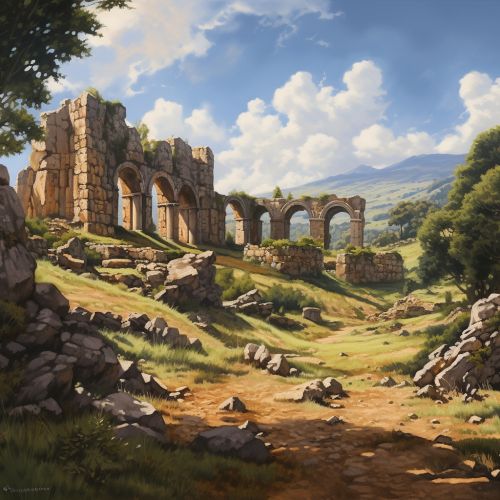Aristotle
Early Life
Aristotle was born in 384 BC in Stagira, a small town on the northern coast of Greece. His father, Nicomachus, was a physician to King Amyntas of Macedonia, which exposed Aristotle to the Macedonian court at an early age. This early exposure to the political and social workings of the state would later influence his philosophical ideas.


Education
At the age of seventeen, Aristotle moved to Athens to study at Plato's Academy, one of the earliest known organized schools in Western civilization. Under the mentorship of Plato, Aristotle spent twenty years at the Academy, where he was exposed to a wide range of ideas, including those of Socrates, Plato's own philosophical mentor.
Career
After leaving the Academy, Aristotle was invited by King Philip II of Macedonia to tutor his son, the future Alexander the Great. Aristotle's teachings to Alexander included lessons on ethics, politics, and the natural sciences. After Alexander ascended to the throne, Aristotle returned to Athens and established his own school, the Lyceum. Here, he conducted courses on a wide range of subjects, including logic, metaphysics, natural science, ethics, and politics.
Philosophical Contributions
Aristotle's philosophical contributions are vast and varied. He is credited with establishing the field of formal logic and is often referred to as the "Father of Logic". His work in this area, particularly his development of the syllogism, laid the groundwork for future philosophers and logicians.
Aristotle's work in metaphysics is equally significant. He explored concepts such as substance, potentiality, and actuality, and his theories have had a profound influence on Western philosophical thought.
In the field of ethics, Aristotle proposed the concept of virtue ethics, arguing that moral virtue is a mean between extremes and that the highest good is eudaimonia, often translated as "flourishing" or "the good life".
Aristotle's political theories, as outlined in his work Politics, revolve around the idea that the state exists for the sake of the good life. He also proposed a classification of constitutions and developed a theory of justice.
Aristotle's contributions to the natural sciences include his observations and classifications in biology and his theories in physics. His work in these areas was influential until the Scientific Revolution in the 16th century.
Legacy
Aristotle's influence on Western thought is immeasurable. His works have been studied and revered by thinkers of all periods, from the Roman Empire to the Renaissance to the present day. His ideas have shaped fields as diverse as philosophy, political science, biology, and literature.
